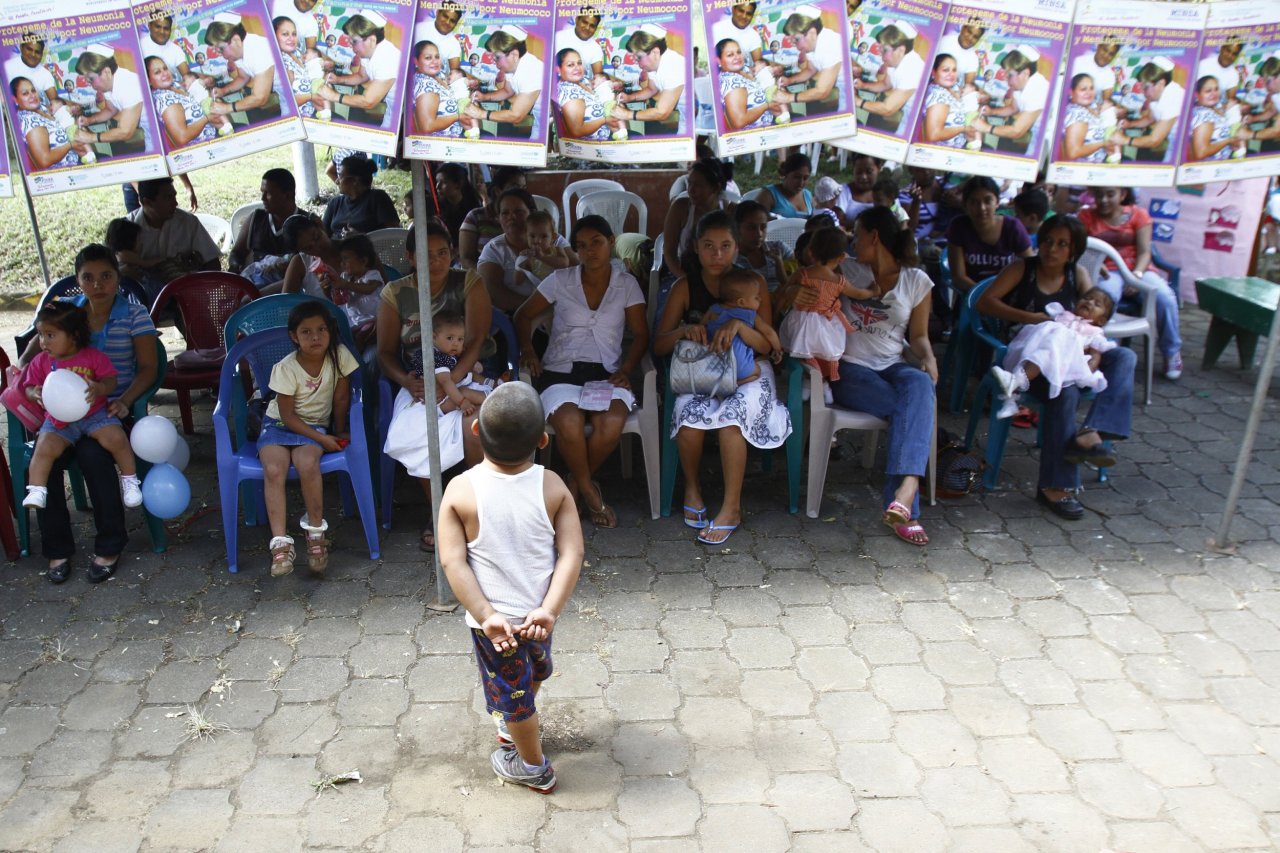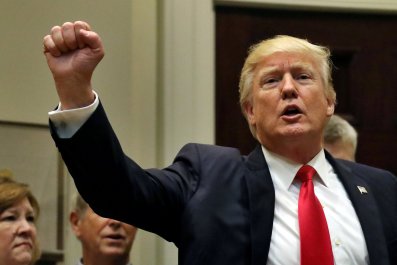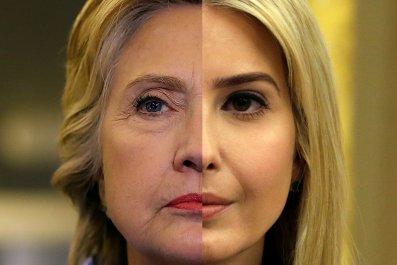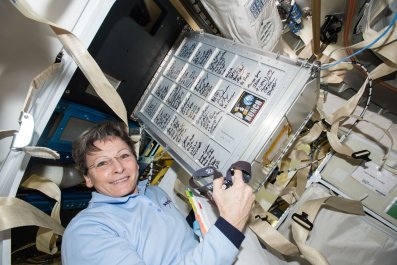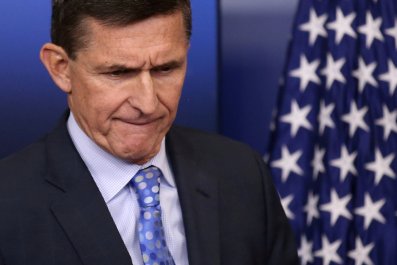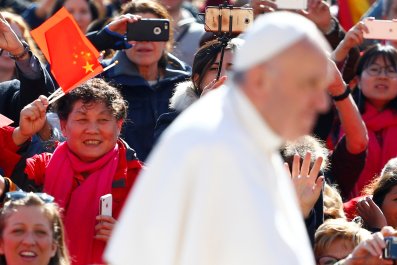Your retirement funds may do more than offer financial security. They might save lives. With the help of a new website, they can be a tool to prevent children dying from pneumonia. At least, that is what Doctors Without Borders is hoping.
This week, the humanitarian nonprofit, which provides emergency medical care during armed conflicts and other crises worldwide, opened an online tool for finding out whether a given investment package includes shares in Pfizer or GlaxoSmithKline (GSK). These pharmaceutical companies make the only pneumonia vaccines for children, and, the nonprofit says, they are unaffordable for many people living in countries with high rates of this potentially fatal illness.
"These people have money invested with Pfizer or GSK and can actually hold the companies accountable," says Brienne Prusak, a spokeswoman for Doctors Without Borders (known outside the U.S. as Médecins Sans Frontières).
The website contains a line for entering the name of a mutual fund—say, the Vanguard 500 Index Fund. A search reveals whether a given 401(k), mutual fund or IRA invests in Pfizer or GSK. If the answer is yes, the page provides suggestions for taking action: send messages to the companies via Twitter, petition fund managers by email to insist the companies drop the price, and tell friends to check their pensions for links to Pfizer and GSK, again via Twitter.
"People say they would take action if only they knew how," says Barbara Saitta, a vaccine advocate with Doctors Without Borders who believes most people want everyone to have access to necessary medications. But, says Saitta, the same people who want affordable vaccines often don't know that their financial investments support the companies standing in the way.
Related: How deadly pollution became one of Mongolia's biggest problems
By exposing that connection, Doctors Without Borders hopes Pfizer and GSK will be persuaded to reduce the price of the vaccine to $5 per child for all three doses in all developing countries. Concrete information about current prices is hard to obtain. The prices for the two vaccines vary around the world.
"We ask countries to pay different prices for the same vaccines that reflects their income," says Sarah Spencer, a spokeswoman for GSK. Middle-income countries pay more than the poorest countries for GSK's vaccine. "We believe this is fair," says Spencer. "It allows us to run our business sustainably."
Pfizer also adjusts the price in line with each country's income. In a statement, Pfizer said the company works with "key stakeholders around the world" to advance public health and prevent disease through vaccination. (According to The Atlantic, Pfizer earned $6.24 billion from its pneumonia vaccine in 2015.)
GSK's annual report says its international vaccine sales increased by 10 percent in 2016, driven mainly by expanded use of Synflorix in Asia and Africa. Neither company responded to requests by Newsweek for the exact price of the vaccine in several countries where childhood pneumonia is common. Spencer says GSK does not publish the prices for individual vaccines in each country because of anti-competition rules and "commercial sensitivities."
Pneumonia is the leading cause of death worldwide for children under 5, and more than 900,000 children die from this lung infection every year. Many of these fatalities are preventable—bacteria are the most common cause of pneumonia, and the disease can usually be treated with inexpensive oral antibiotics. But in the low-income countries where most of these deaths occur, these basic medications are too expensive for many people. In India, Nigeria, Pakistan, Somalia and other nations with a high incidence of pediatric pneumonia, less than 50 percent of the infected children receive antibiotics. In some countries, that rate falls to less than 15 percent.
Related: Rising antibiotic resistance in children has infectious disease experts scared
Vaccines against pneumonia have been available since 2000. In the U.S., the Centers for Disease Control and Prevention recommends the immunization for all children younger than 2. The World Health Organization (WHO) says that all countries should do likewise, particularly those where high numbers of children are dying from the infection. The two vaccines—Prevnar, made by Pfizer, and Synflorix, by GSK—don't prevent bacteria from entering the body, but they do stop the microbes from colonizing the lungs, which is what causes the trouble. A single dose protects eight out of 10 babies from invasive pneumonia, and health authorities recommend three doses.
Despite widespread distribution of the pneumonia vaccines, many countries with a high disease burden have poor immunization rates. The Global Action Plan for Pneumonia and Diarrhea, which lays out the guidelines for ending preventable deaths from these two conditions, as set by the WHO and UNICEF, calls for 90 percent of all children under 5 to receive three doses of the pneumonia vaccine. But while some countries, such as Tanzania, have expanded vaccine coverage, others have not. Just 13 percent of Nigerian children are vaccinated against pneumonia, which is on the rise there possibly due to the displacement and other damage wrought by Boko Haram. India, China and Indonesia have not integrated the pneumonia vaccine into their recommended routine immunization schedules.
Doctors Without Borders believes one of the barriers to broader vaccine coverage is the cost of each shot. That expense is prohibitive not only in the poorest regions, says Saitta, but also in middle-income countries. She cites Jordan, which the World Bank considers an upper-middle-income country. According to the organization, the three-dose vaccine costs between $50 and $60 per child, bringing the total for nationwide coverage, including for the hundreds of thousands of refugees now living there, to an estimated $13 to $20 million, more than half that country's vaccine budget.
Late last year, following years of negotiations with Doctors Without Borders—and a surprising but firm refusal by the organization to accept 1 million free doses of the pneumonia vaccine from Pfizer— both Pfizer and GSK agreed to lower the price of their pneumonia vaccines for children affected by crisis situations such as armed conflict or displacement. For children caught up in humanitarian emergencies, the companies charge less than $10 for all three doses. GSK and Pfizer also have pricing agreements with the Vaccine Alliance (formerly the Global Alliance for Vaccines and Immunisation, or GAVI) to provide their pneumonia vaccines at no more than $3.30 per dose in the 57 developing countries.
Doctors Without Borders now wants Pfizer and GSK to lower the vaccine price to $5 for three doses for all low- and middle-income countries, regardless of any specific crisis. The companies have so far declined, which is where 401(k) holders and other investors can enter the picture.
Can minor shareholders have any sway over pharmaceutical pricing practices? Probably not, says Mike Scherer, a former economics professor at the Harvard Kennedy School. He points out that the complaint of one shareholder, or even many shareholders, is unlikely to be heeded when a company has thousands of investors. "It's hard to listen to a voice crying in the wilderness," Scherer says. Bad publicity is much more likely to goad companies into lowering prices than are complaints from a scant group of shareholders.
Bill Comanor, who teaches health policy at the University of California, Los Angeles, Fielding School of Public Health, is even more doubtful. "I consider this type of moral suasion to be strikingly irrelevant," he says. Although companies do sometimes make decisions that are not in their best financial interest, customer complaints are rarely the spur. And strong-arming a company into lowering a vaccine price is, says Comanor, akin to Donald Trump throwing Twitter shade at companies planning to move jobs overseas.
Still, if enough individuals take action, Pfizer and GSK could relent. Scherer cites the history of HIV drugs as a case in point—activism was crucial in forcing drugmakers to lower the prices for these medications in low-income countries. Spencer insists that, as a publicly traded company, GSK welcomes feedback from shareholders "on issues that matter to them." And Doctors Without Borders has accomplished such goals—as evidenced by the drastically reduced price of the pneumonia vaccine during emergencies.
Of course, demanding that a company forgo profit is not an easy sell, says Stuart Schweitzer, who also teaches at the Fielding School of Public Health. A pharmaceutical company may understandably question a demand from its shareholders to lower the return on their investment. "That's when informed investors should say, 'We insist,'" says Schweitzer. "If lots of people do it, then that's great."
Scherer sums up the conundrum. "It's a hard cause," he says, "but a good cause."


